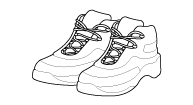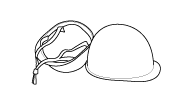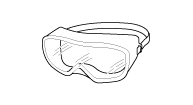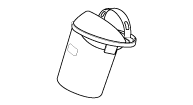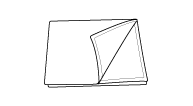Kia Optima Hybrid: Automatic Transaxle System / General Safety Information and Caution
| Safety Precaution |
|
|
|
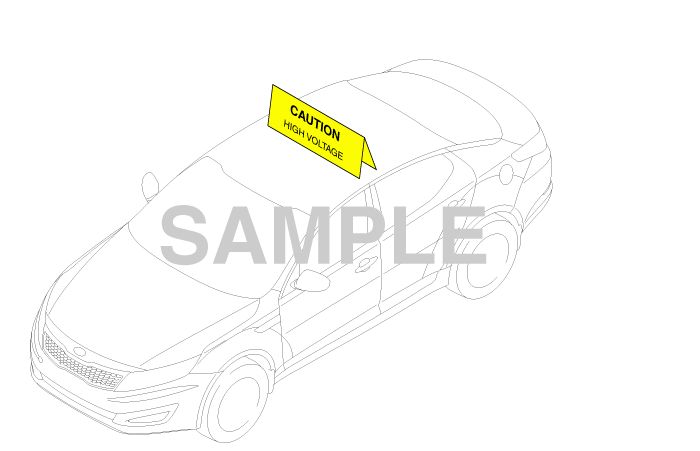
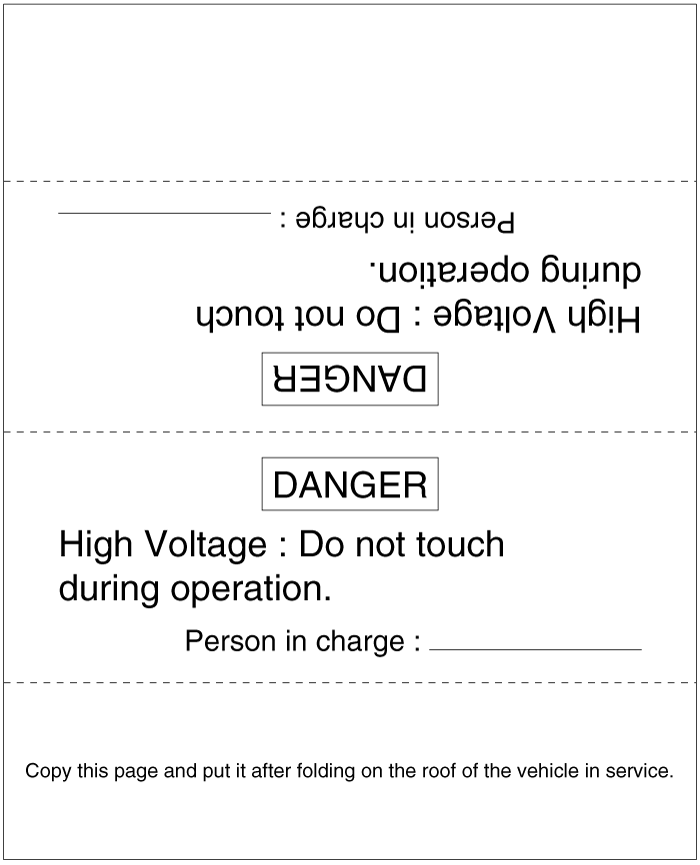
| Personal Protective Equipment |
| Name | Illustration | Description |
| Insulation glove |
| Used when inspecting or working on the high voltage components [Insulation performance : 1000V / 300A or above] |
| Insulation shoes |
| Used when inspecting or working on the high voltage components |
| Insulation clothes |
| |
| Insulation helmet |
| |
| Safety glasses |
| Used in the case below • During Removal & installation or inspection of the high voltage battery terminals or wiring, which spark might happen. • During working on the high voltage battery pack assembly. |
| Face shield |
| |
| Insulation mat |
| Putting the removed high voltage components on the insulation mat to prevent safety accidents. |
| Insulation sheet |
| Covering
the high voltage components with insulation sheet to prevent people who
don’t wear the personal protective equipment from safety accidents. |
|
| Hybrid Vehicle Refrigerant Recovery / Charging Precautions |
|
 High Voltage Shut-off Procedures
High Voltage Shut-off Procedures
High Voltage Shut-off Procedures Be sure to read and follow the “General Safety Information and Caution” before doing any work related with the high voltage system. Failure to follow ...
Other information:
Kia Optima Hybrid (TF HEV) 2016-2020 Service Manual: Panoramaroof Motor Repair procedures
Inspection 1. Disconnect the negative (-) battery terminal. 2. Remove the roof trim. (Refer to the BD group - "Roof trim") 3. Disconnect the panoramaroof motor (A) connector. 4. Ground the terminals as below table, and check that the panoramaroof unit operates. – When inspecting the panoramaroof ...
Kia Optima Hybrid (TF HEV) 2016-2020 Service Manual: Telemetics Unit (TMU) Repair procedures
Removal • Take care not to scratch the crash pad and related parts. 1. Disconnect the negative (-) battery terminal. 2. Remove the AVN head unit. (Refer to AVN System - "AVN Head Unit") 3. Disconnect the TMU unit and GPS connector (A). 4. Remove the TMU unit (B) after loosening the nuts. ...






